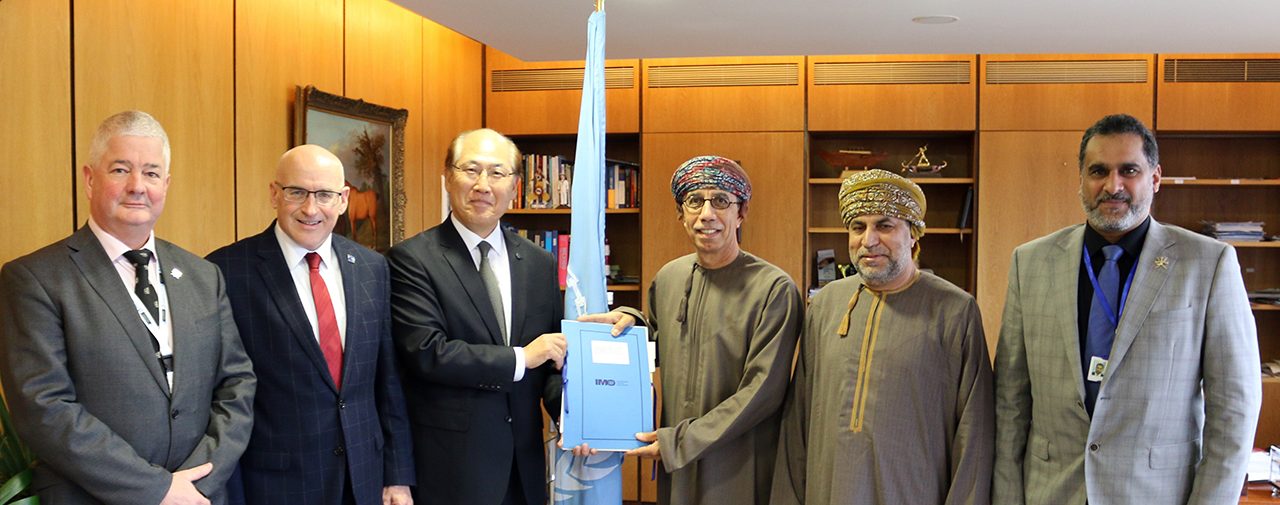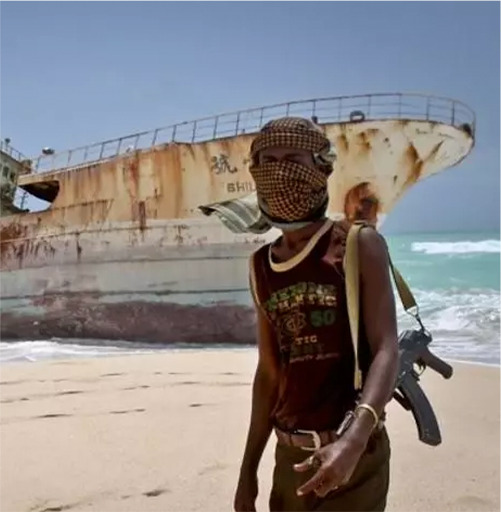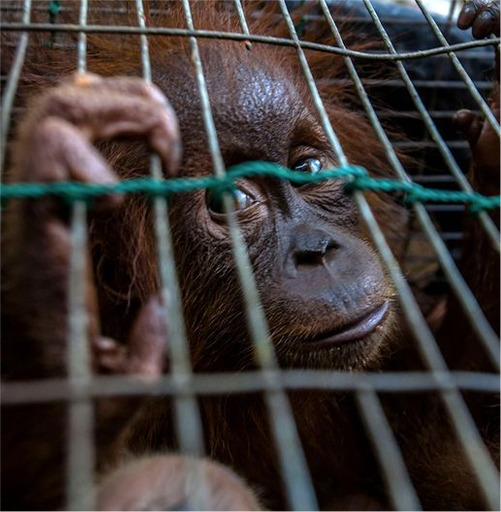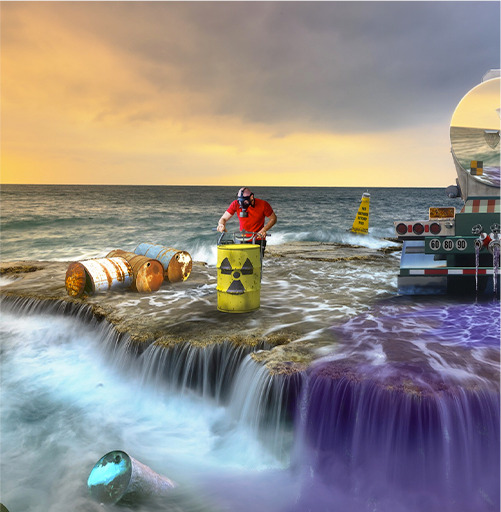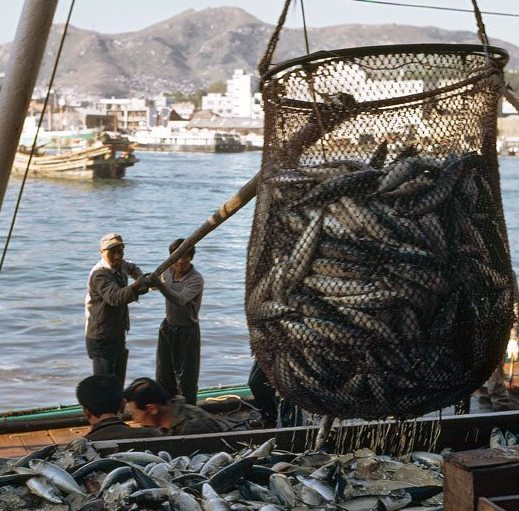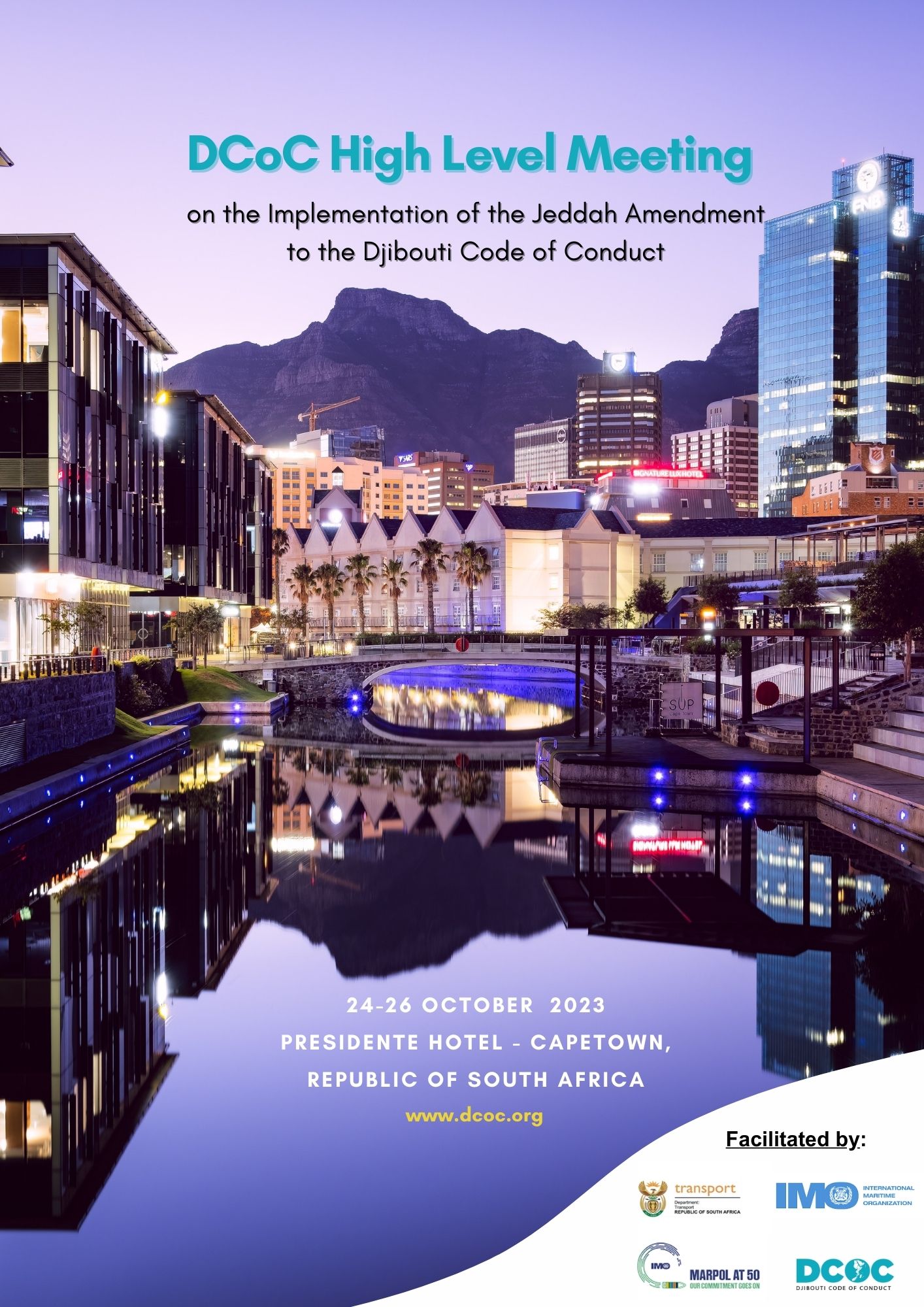Jeddah Amendment
In 2017, the DCoC scope was expanded to include human trafficking and other illegal maritime activities in the western Indian Ocean and the Gulf of Aden area. These activities include: (a) Human trafficking and smuggling, (b) Illegal, unreported and unregulated (IUU) fishing, (c) Trafficking in narcotics and psychotropic substances. (d) Arms trafficking, (e) Illegal trade in wildlife, (f) Crude oil theft, and (g) Illegal dumping of toxic waste.
The revision – signed in Jed-dah, Saudi Arabia on 12 January 2017 – became known as the Jeddah Amendment to Djibouti Code of Conduct 2017. So far 18 of the 20 DCoC signatory States have signed the Jeddah Amendment. They are: Bahrain, Comoros, Djibouti, Ethiopia, Jordan, Kenya, Madagascar, Maldives, Mauritius, Mozambique, Oman, Republic of South Africa, Saudi Arabia, Seychelles, Somalia, United Arab Emirates, United Republic of Tanzania and Yemen.
Under the Code, which became effective from the date it was signed, signatories declared their intention to co-operate to the fullest possible extent in the repression of transnational organized crime in the maritime domain, maritime terrorism, and other illegal activities at sea. It takes into account provisions of United Nations General Assembly resolution 70/1 on transforming our world: the 2030 Agenda for Sustainable Development, including the Sustainable Development Goals detailed therein and, in particular, Goal 14 and Goal 16.
The implementation of the Jeddah Amendment is a major commitment on the part of all the participating member States. Unlike dealing with piracy that did not necessarily require much coordination at national level, it requires ‘all hands on deck’ approach.

At national level, a multi-agency all of Government approach, as well as commitment to implement programmes that will lead to enhanced Maritime Domain Awareness (MDA), the effective understanding of what happens at sea, coupled with building response capability is needed. This is a vital and necessary step to achieve a safer and secure national and regional maritime environment.
The spirit of the Jeddah Amendment is that no country should be left behind. It is for that reason that the code calls for sharing of experiences and best practices. The Jeddah Amendment has evolved to be the main regional focus for maritime capacity building coordination and offers an excellent framework for coordination of technical assistance provided by the international community.
In supporting the implantation of the code of conduct, IMO has developed strong partnerships with key implementing partners including the United Nations Office on Drugs and Crime (UNODC), the International Criminal Police Organization (INTERPOL), the European Union; United States Africa Command (US AFRICOM), Canadian Coast Guard, the One Earth Future Foundation’s Stable Seas project, the Institute for Security Studies, the SafeSeas network, the International Committee of the Red Cross (ICRC), Mohammed Bin Nayef Academy of Marine Science and Security Studies (Saudi Arabia), Djibouti Regional Training Centre, British Peace Support Team (Africa), NATO Maritime Interdiction Operations Training Centre (NMIOTC, Greece), among others.
By 2020, India, Japan, Norway, the UK and the US had signed on as observers to the DCOC/JA. This further enhances participation on coordinated multilateral tracks, and efforts to boost maritime security through training, capacity building, and information exchange.
Additionally, observers help in providing greater transparency in the maritime domain by assisting in upgrading existing information sharing mechanisms and by connecting them to present a transparent and seamless maritime picture.

